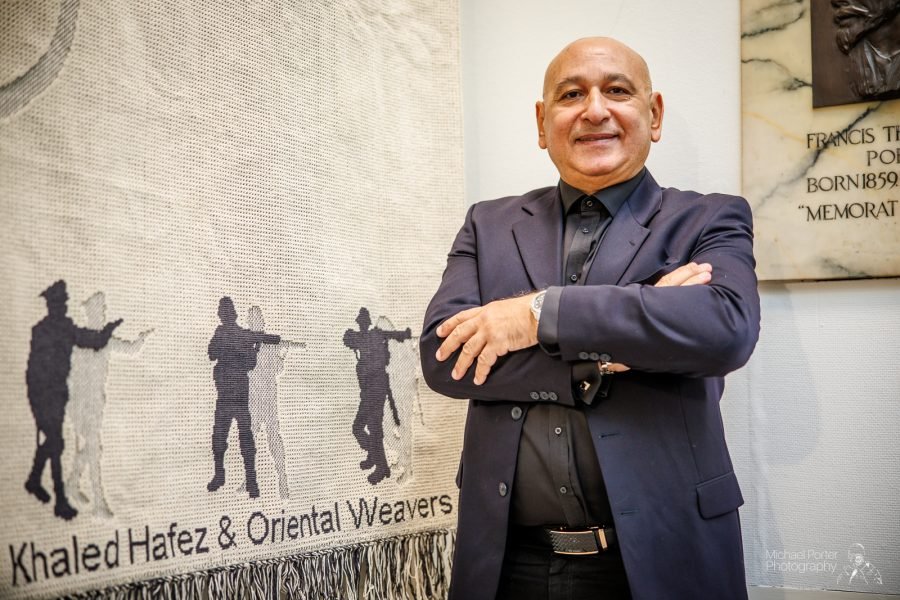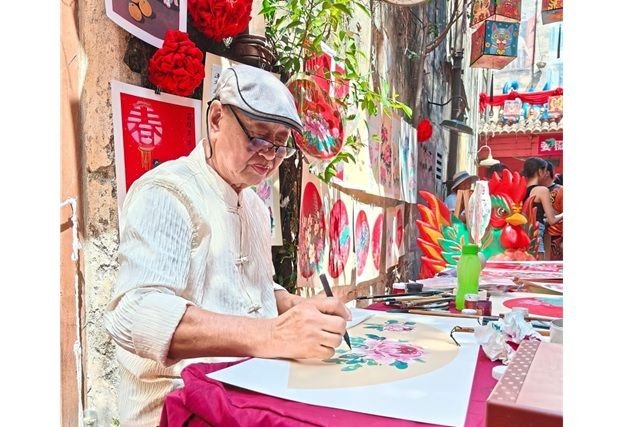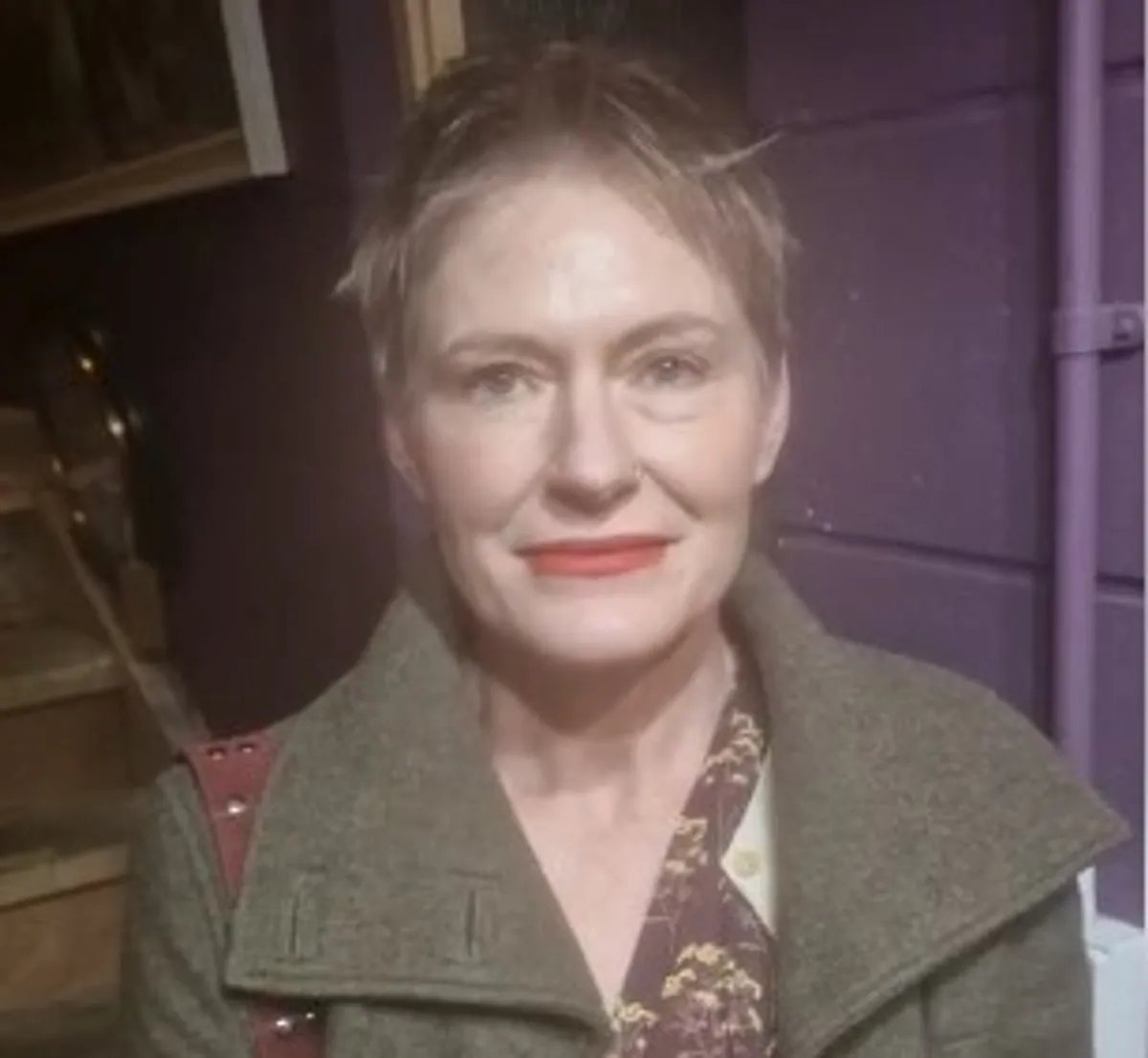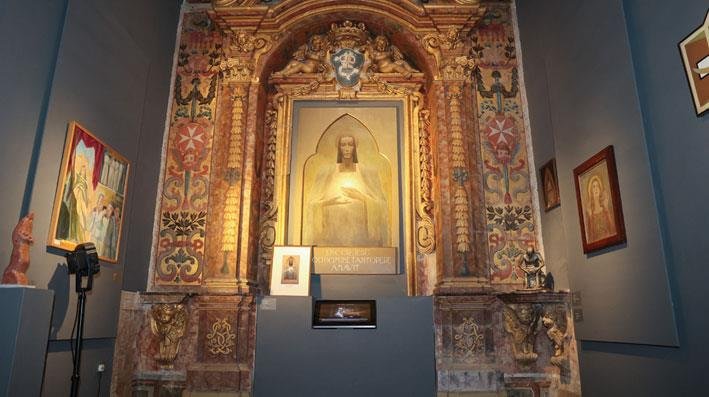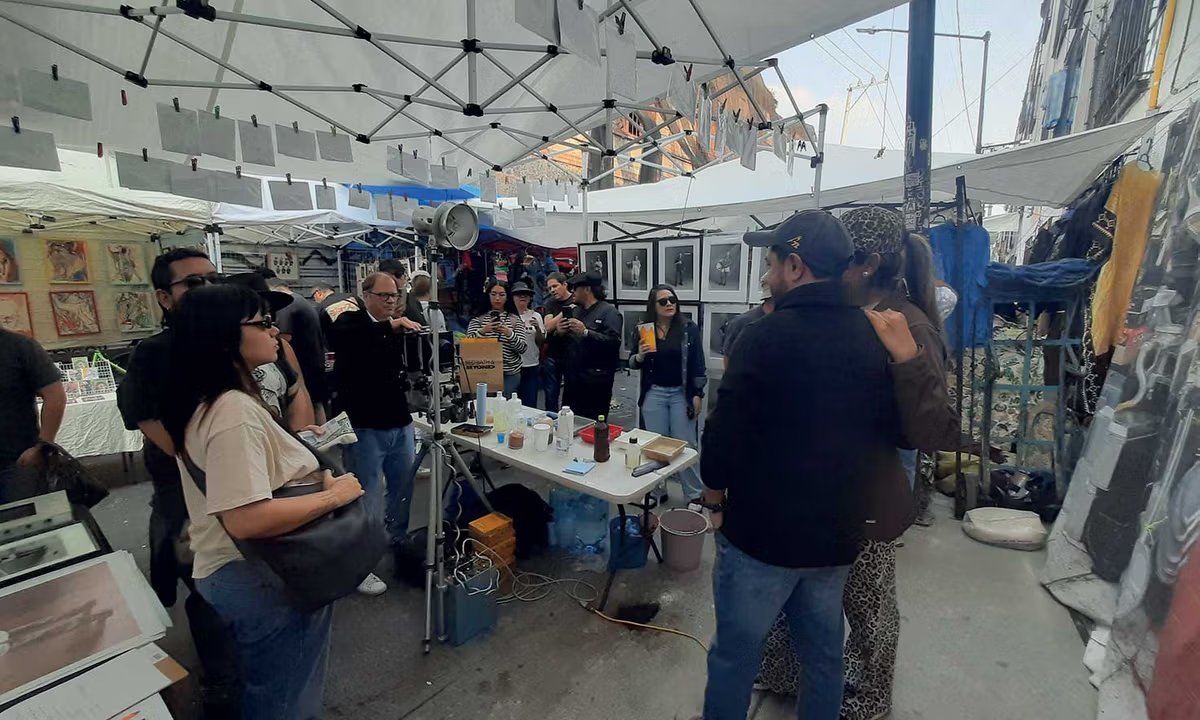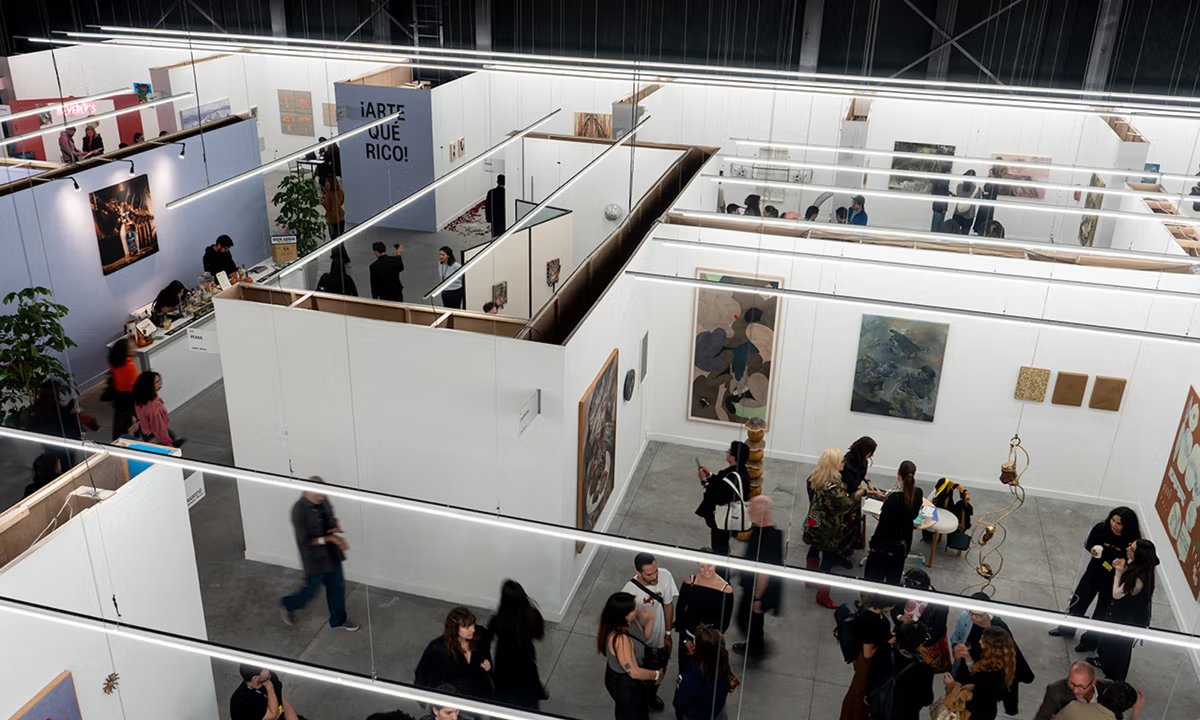Images of Egypt feature at the very heart of the Harris on the much-loved Egyptian Balcony, the museum’s first art commission. Despite Egypt’s strong presence in the building, Khaled’s commission is the first time that connections between Egypt, the UK and Preston have been explored.
Read more: In pictures: Ribbon cutting and visitors flood in as The Harris returns
Khaled’s project, titled Dwelling Histories, considers the impact British occupation had on Egypt during the 1900s, in particular the Egyptian Revolution of 1919, which led to independence in 1922, and the eventual withdrawal of British troops in 1956.
The project was made possible by the IWM 14-18 NOW Legacy Fund, a national partnership programme of over 20 artist commissions inspired by the heritage of conflict.
Khaled’s work includes a film that uses Al animation to enliven historic photographs of Lancashire cotton mills and Egyptian cotton plantations. The photographs are combined with military imagery and a soundtrack that includes Egyptian and British songs and chants dating from the time.
A frieze, which winds up the staircase from the ground to the first floor, is made from collaged hand-cut and laser-cut paper motifs glued to the wall. Khaled includes military motifs, such as soldiers, tanks and fighter planes, researched from the British iconography of the World Wars to create a visual language reminiscent of ancient Egyptian wall paintings. University of Lancashire Fine Art students and Harris volunteers helped Khaled to realise his vision for the frieze.

The first-floor landing display comprises a series of screen prints of family members who witnessed the revolts of 1919 and two hanging textiles. The Egypt case on the second floor includes a spotlight display by Khaled.
Through his storytelling, Khaled explores the histories and impact of British occupation in Egypt during the 1900s, which he also considers as a kind of cultural and industrial exchange.
Read more: Listen: A life in plasticine as Nick Park reflects on animation success
We caught up with Khaled to find out more.
What is your approach to art?
I’m 62-years-old, so I was born in a time when Egypt adopted a Soviet manner of socialism. I grew up with the Egyptian walls. My only outing was to the temple, the pyramids, or the zoo. We did not have the luxury of going to any other place, so it meant only telling stories.
Since I’m a storyteller, I focus on the narrative. I never use ‘isms’ like colonialism, afrocentrism, arabfuturism. They are academic terms, made for philosophical ways of thinking. While that’s very much appreciated for the sake of discussion and discourse, sometimes they’re blockers to the artwork.
I teach at The British University in Egypt, which is partnered with Manchester Metropolitan, and at The Virginia Commonwealth University School of the Arts in Qatar, which belongs to Virginia Commonwealth University, a public university in the USA. With academia, in art education worldwide, we have this impasse in that all the artwork produced needs to depend on a gazillion years of research. It’s seldom that we find people focussing on the production as much as the process of creating art. And I do care about the art production.

How did this commission come about?
I was invited to apply. I did my research and created a proposal that links the cotton industry to Preston and Horrockses, plus the Greater Manchester area and Leeds. As early as the mid-20th century, many Egyptians came to study textile engineering before returning home to assume positions in the textile industry. So I linked all that, and came up with the proposal.
When it started, we had site specific works on the wall, and two animated screens. Later, with the postponements, we added two carpets and sculptured pieces. The only thing that did not evolve is the name, which remains as Dwelling Histories.
Tell us more about the frieze element of your exhibition.
We partnered with the University of Lancashire, working with The Art Lab, which is the print unit of the School of Art and Design. Tracy and her team, Nick, Katherine, and Chris, worked with me on the series for almost a year. I had been to visit on two research trips but, after the third postponement, I took a residency in Doha and worked with the curators remotely.
I placed the motifs on the staircase, but the area leading through to the bathrooms was exclusively done by the volunteers that I trained. It will also be the basis for workshops in the future, so eventually, the know-how and the techniques will be able to be done when I’m far away.

And how about the film?
When I wrote the proposal, using AI to create a film was not feasible in Cairo. Later, it became an option. The film is five minutes, and you can see from the credits that it has been a long work of two-and-a-half years.
The only real image is one of my grandfather that I animated in AI. The rest is computer generated imagery. You will see impressions of the British campaign in Egypt, which move from right to left. You will see the cotton industry in Lancashire, the cotton collection and fields, which move from left to right. But you don’t see the British and the Egyptians fighting.
That’s because every country has its own colonial specificity. What happened in Egypt is not like what happened in India or what happened in South Africa or what happened in Nigeria. With us, it was a relationship. Yes, it was colonial but there was a lot of exchange. The textile industry improved, railroads were created, and at the same time, English missionary schools happened a lot.
Tell us more about how you view the relationship between Britain and Egypt.
The British claimed 82 years. After the colonial times, many Egyptians came to study in the UK, and they still do until this day. Doctors engineers, lawyers, mathematicians, you name it. Some of them come to live, they teach, they become famous physicians. And at the same time, we have a lot of mixed marriages. I was born Muslim, but my parents put me in an Irish Catholic school because it was the good education at the time. The way you look at your coloniser immediately after independence decides what’s happening in the future. To us, it was and still is an exchange.
What do you think of Preston?
At this stage of my life, I’m into smaller, more contained and predictable places. Cities that are calm enough that it helps you to write, perform and produce. In Cairo, I live outside the city, because otherwise it would be havoc. But I’m in love with Preston. If I’m ever offered a teaching position nearby, I’ll take it.
What about The Harris itself?
It’s phenomenal. I believe it’s the museum for the next generation. With every cabinet, you have a short story and it’s a great education process. You can come and cover a floor, and you will learn 10 to 12 things. The cabinets are well curated and will teach you everything from fashion to design, to art, contemporary or ancient, to the history of the city.
So you have like all these diverse elements that have come from the private collections of inhabitants of this city across 100 years plus. The Harris is a time capsule for the past, and at the same time, an educational institute for the present and the future.

How do you feel to be part of The Harris?
I’m very proud, especially because it’s a permanent collection, and I’m also proud to work with the Imperial War Museum.
This is my longest curator-artist relationship. It’s been over two years since Lindsey McCormick and Nicola Hood contacted me up until The Harris opening. I’m really glad to have worked with the curatorial team, the management team, and particularly the technical team – they are second to none and I have learned a lot.
To find out more and plan your visit to Dwelling Histories by Khaled Hafez, visit The Harris website.
Subscribe: Get the latest headlines direct from Blog Preston – join our WhatsApp channel and sign up for our twice-a-week email newsletter.
Support local culture: Become a member for just £6 a month, or £60 a year, to help us champion Preston’s arts, culture, and events – and enjoy an ad-free experience while you’re at it.
More: Discover what’s on in Preston
More: Explore our event listings and plan your next outing
More: Read the latest Preston news and headlines
Share:
Article categories
Arts & Culture, People, Preston City Centre, Preston News, What’s On in Preston
- Support independent journalism
- Ad free browsing experience
- Special thanks
Annual membership
Monthly membership
Preston Businesses
Subscribe to our newsletter
![]()
Subscribe
Proud Preston
23 Articles



Prestonians doing good and lovely things View collection

